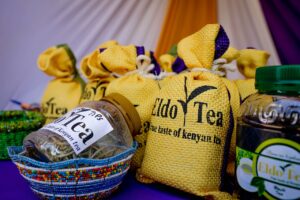The Swahili Present Tense: Expressing What You’re Doing Now
In this post we’ll look at the Swahili Present Tense, which is the tense that can be translated as the simple present in English (I speak) or the present progressive (I am speaking). First we’ll look at how the tense is formed. We’ll focus on the subject prefixes, the present tense infix, and the verbal root. Next we’ll see some examples, first with human subjects, and then with non-human and inanimate subjects. After that we’ll turn to the negative Swahili present tense. Finally, we’ll see several examples of negative sentences with human subjects, and then with non-human and inanimate subjects.
Forming The Swahili Present Tense
The Swahili Present Tense is formed with three parts. (There can be more, but we’ll come back to that and keep things simple for now.) First is a subject prefix, which tells you about the subject. Next is the tense infix –na-, which tells you that the tense is present. Finally is the verb root, which is the verb minus the ku– infinitive form. Let’s see some examples before we dig into the details.
| Subject Prefix | Tense Infix | Verb Root | Conjugated Verb | Meaning |
| ni- | -na- | -sema | ninasema | I speak |
| u- | -na- | -lala | unalala | you sleep |
| tu- | -na- | -toka | tunatoka | we are from |
Now let’s break down the three elements in each of those examples.
Subject Prefixes
First, you need to use the correct subject prefix. If the subject is a person, you use one of the following prefixes:
| Pronoun | Subject prefix | English |
| mimi | ni- | I |
| wewe | u- | you (singular) |
| yeye | a- | he/she |
| sisi | tu- | we |
| nyinyi | m- | you (plural) |
| wao | wa- | they |
If the subject isn’t a person, you need to use the correct singular or plural subject prefix for the noun class. For example, A-Wa nouns take a- in the singular and wa- in the plural, just like the yeye and wao forms above, because animate nouns including animals and humans are all in the same noun class. Ki-Vi nouns take ki- in the singular and vi- in the plural. The other noun classes have their own subject prefixes, and you can learn them all by taking a look at this post on noun classes or following the links to the specific noun classes themselves.
Present Tense Infix –NA–
The next element in the conjugated verb is the tense infix. For the present tense, it’s –na-.
Verb Root
Finally, you have the verb root, which is formed from the infinitive. Swahili infinitives have the prefix ku-, and to form the verb root, just remove the ku-:
- kusema (to speak): root –sema
- kulala (to sleep): root –lala
- kutoka (to be from): root –toka
A couple of common verbs keep the ku- because they’d just be one syllable otherwise:
- kula (to eat): root –kula
- kunywa (to drink): root –kunywa
- kuja (to come): root –kuja
- kuenda (to go): root –kwenda (note kw– instead of ku-)
Notice that these verbs all end in –a. Most Swahili verbs do, but there are a few exceptions: kuishi (to live), kusafiri (to travel), kufikiri (to think), kujibu (to answer), kurudi (to return), and kujaribu (to try) for example. Apart from the ending, these verbs function just like verbs ending in –a.
More Complex Verbs
To keep things simple, we’re only looking at subject prefixes, tense infixes, and verb roots. These are indeed the most important elements in a Swahili verb, but there can be more. For example, if there’s a direct object pronoun, it shows up not as a separate pronoun like in English, but rather as another infix inside the verb. For example:
- Ninakupenda.
I love you. (-ku– is the direct object infix meaning you) - Unanipenda?
Do you love me? (-ni– is the direct object infix meaning me) - Ninampenda.
I love her/him. (-m– is the direct object infix meaning her or him)
There are also other types of infixes and elements that you can stack together to form a more complex verb, but we won’t focus on them here.
Examples
Let’s see several examples of the present tense in Swahili.
Examples with Human Subjects
First, let’s look at some examples with human subjects. Remember that you need to use the subject prefixes listed in the table above. Note that you typically drop the free-standing subject pronouns like mimi (I), wewe (you), and so on.
- (Mimi) Ninajifunza Kiswahili.
I’m learning Swahili. - Unasema Kiingereza?
Do you speak English? - Tunazungumza Kiingereza na Kiswahili.
We speak English and Swahili. - Mke wangu anatoka Zanzibar.
My wife is from Zanzibar. - Mwalimu anasoma vitabu vingi.
The teacher reads a lot of books. - Tunafanya kazi pamoja.
We work together. - Watoto wanacheza bao.
The children are playing bao.
Non-Human and Inanimate Subjects
Now let’s see some examples with non-human and inanimate subjects. Remember that you use the singular (for it or singular nouns) or plural (for they or plural nouns) subject prefixes for each case. Here are examples of both singulars and plurals in several noun classes, all with the verb kuanguka (to fall).
- Sokwe anaanguka. Sokwe wanaanguka.
The chimpanzee is falling. The chimpanzees are falling. [a-wa class] - Kiti kinaanguka. Viti vinaanguka.
The chair is falling. The chairs are falling. [ki-vi class] - Dawati linaanguka. Madawati yanaanguka.
The desk is falling. The desks are falling. [li-ya class] - Mti unaanguka. Miti inaanguka.
The tree is falling. The trees are falling. [u-i class] - Mvua inaanguka.
The rain is falling. [i-i class] - Ukuta unaanguka. Kuta zinaanguka.
The wall is falling. The walls are falling. [u-zi class] - Kalamu inaanguka. Kalamu zinaanguka.
The pen is falling. The pens are falling. [i-zi class]
Negating the Swahili Present Tense
Now let’s look at how to form negative sentences in the Swahili present tense. There are a couple of changes that happen in the negative:
- If the verb ends in -a in the affirmative, it changes to –i.
For example, the verb root –sema becomes –semi. - Verbs ending in other vowels keep those vowels.
For example, the verb roots –jibu and –safiri stay the same. - There is no –na– present tense infix in the negative.
- You use a different set of prefixes that mostly begin with h-, except for the mimi form, added to the same subject prefix as the affirmative.
| Pronoun | Affirmative | Negative Prefix | Negative |
| mimi | ninasema | si- | sisemi |
| wewe | unasema | hu– | husemi |
| yeye | anasema | ha– | hasemi |
| sisi | tunasema | hatu– | hatusemi |
| nyinyi | mnasema | ham– | hamsemi |
| wao | wanasema | hawa– | hawasemi |
Negative Examples with Human Subjects
Let’s see the negative forms of the earlier examples.
- (Mimi) Sijifunzi Kiswahili.
I am not learning Swahili. - Husemi Kiingereza?
Don’t you speak English? - Hatuzungumzi Kiingereza na Kiswahili.
We don’t speak English and Swahili. - Mke wangu hatoki Zanzibar.
My wife is not from Zanzibar. - Mwalimu hasomi vitabu vingi.
The teacher does not read a lot of books. - Hatufanyi kazi pamoja.
We are not working together. - Watoto hawachezi bao.
The children are not playing bao.
Non-Human and Inanimate Subjects
For non-human and inanimate subjects, follow the same pattern. Change the final vowel to –i if it ends in –a, don’t use the –na– infix, and add ha– to the beginning.
- Sokwe haanguki. Sokwe hawaanguki.
The chimp is not falling. The chimps are not falling. - Kiti hakianguki. Viti havianguki.
The chair is not falling. The chairs are not falling. - Dawati halianguki. Madawati hayaanguki.
The desk is not falling. The desks are not falling. - Mti hauanguki. Miti haianguki.
The tree is not falling. The trees are not falling. - Mvua haianguki.
The rain is not falling. - Ukuta hauanguki. Kuta hazianguki.
The wall is not falling. The walls are not falling. - Kalamu haianguki. Kalamu hazianguki.
The pen is not falling. The pens are not falling.
Get on the road to speaking Swahili with the Language Garage!
We hope you’ve enjoyed learning about the Swahili Present Tense. If you’d like to learn more:
- Follow us on Facebook, LinkedIn, BlueSky, Twitter, Threads, Instagram, or Pinterest. We publish lots of Swahili vocabulary, grammar, and culture notes, so it’s a great way to pick up some new vocabulary and practice.
- Check out our other posts on Swahili language, culture, and more.
- Enroll in affordable, flexible, and personalized private online Swahili lessons or sign up for a small group online Swahili class.
- Create a free Language Garage account to access tons of Swahili vocabulary, grammar, and culture.
Photo by Taryn Elliott






